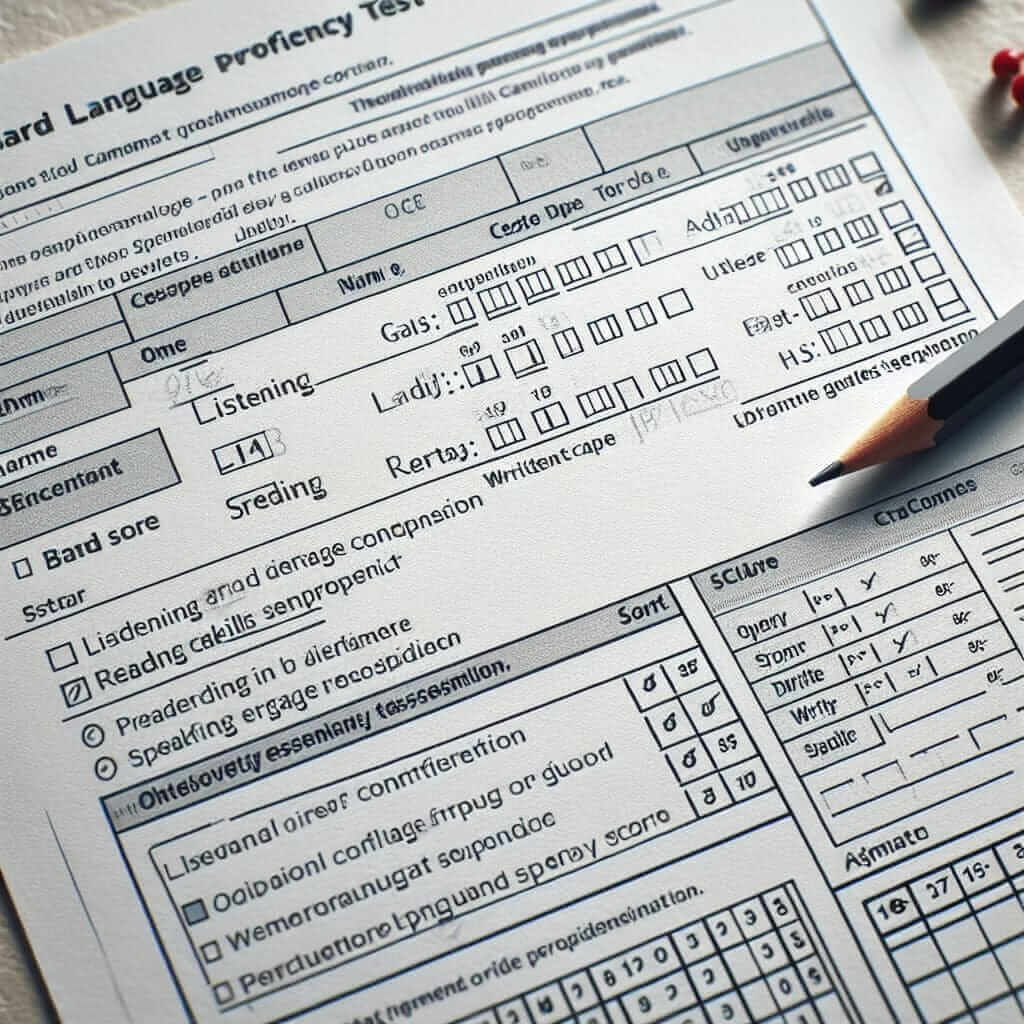As an IELTS instructor with over 20 years of experience, I often encounter students with questions about the IELTS Test Report Form (TRF). Understanding your TRF is crucial, especially when it comes to sending your scores to institutions and interpreting your performance. This guide will delve into the details of the IELTS TRF, answering common questions and offering insights to help you navigate this important document.
What is an IELTS TRF?
The IELTS TRF is an official document issued by the British Council, IDP: IELTS Australia, and Cambridge Assessment English to test-takers who have taken the IELTS exam. It provides a detailed breakdown of your performance in all four sections of the IELTS test: Listening, Reading, Writing, and Speaking.
What information does an IELTS TRF contain?
Your IELTS TRF includes the following:
- Your personal details: Full name, date of birth, candidate number, test date.
- Test type: IELTS Academic or IELTS General Training.
- Test scores: Individual band scores (from 0 to 9) for each section (Listening, Reading, Writing, Speaking) and an overall band score.
- Test Report Form Number: A unique number identifying your specific TRF.
- Date of issue: The date your TRF was issued.

How many IELTS TRFs can I get?
You can receive a maximum of five (5) original TRFs directly from the test center where you took your IELTS exam. These are typically sent to the institutions you specified during registration.
Important Note:
- Additional original TRFs cannot be issued after the initial five, but you can request additional copies to be sent directly to recognizing organizations.
- Keep your original TRF safe and secure, as it is an important document.
How long is an IELTS TRF valid for?
An IELTS TRF is typically valid for two years from the test date. However, it’s essential to check the specific requirements of the institutions or organizations where you plan to submit your scores, as they may have different validity periods.
Can I get a replacement IELTS TRF if I lose it?
Unfortunately, you cannot receive a replacement TRF if you lose your original. This is because the original TRF is a secure document. However, you can request additional TRFs (up to your limit of five) to be sent directly to recognizing organizations.
How can I interpret my IELTS TRF scores?
Each section and the overall band score on your IELTS TRF represents your proficiency level in English. The band scores range from 0 to 9, with 9 being the highest level. Here’s a general interpretation:
- 9 – Expert User: You have a full operational command of the language.
- 8 – Very Good User: You have a fully operational command of the language with occasional inaccuracies.
- 7 – Good User: You have an operational command of the language, though with occasional inaccuracies.
- 6 – Competent User: You have an effective command of the language despite some inaccuracies.
- 5 – Modest User: You have a partial command of the language.
- 4 – Limited User: Your competence is limited to familiar situations.
- 3 – Extremely Limited User: You convey and understand only general meaning in very familiar situations.
- 2 – Intermittent User: You have great difficulty understanding spoken and written English.
- 1 – Non-User: You have no ability to use the language except for a few isolated words.
- 0 – Did not attempt the test: No assessable information.
Tips for a Successful IELTS Test:
- Practice Regularly: Consistent practice is key to improving your English skills. Use official IELTS practice materials and simulate test conditions.
- Focus on Your Weaknesses: Identify your areas of weakness and dedicate extra time to improving them.
- Develop Effective Test-Taking Strategies: Time management is crucial in the IELTS exam. Learn and practice techniques for each section.
- Seek Feedback: Get your writing and speaking evaluated by experienced IELTS instructors to identify areas for improvement.
Conclusion:
Your IELTS TRF is a valuable document that reflects your English language proficiency. By understanding its contents, validity, and the interpretation of your scores, you can confidently present your results to institutions and achieve your academic and professional goals. Remember, thorough preparation is key to achieving a successful outcome on your IELTS test. Good luck!